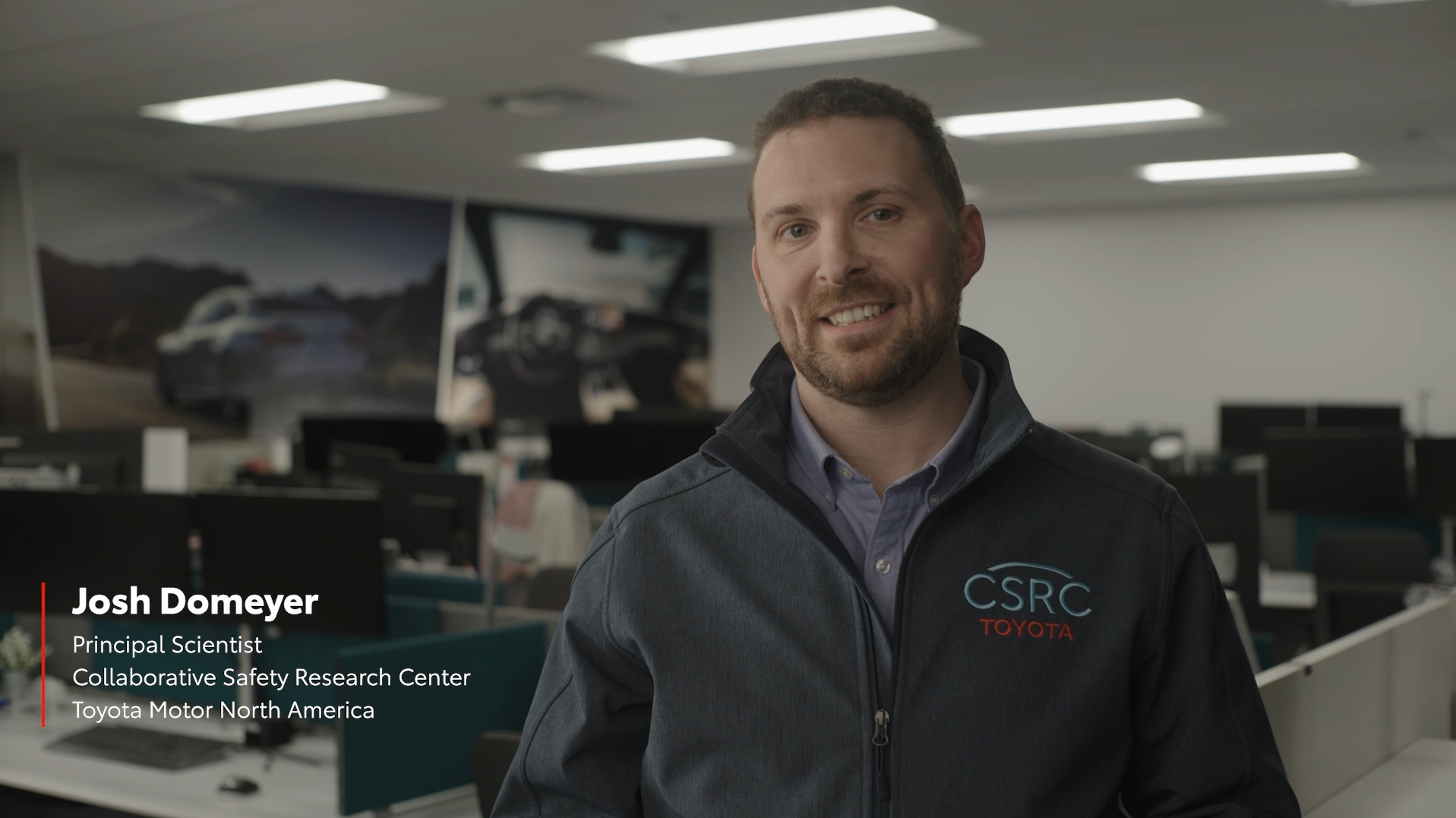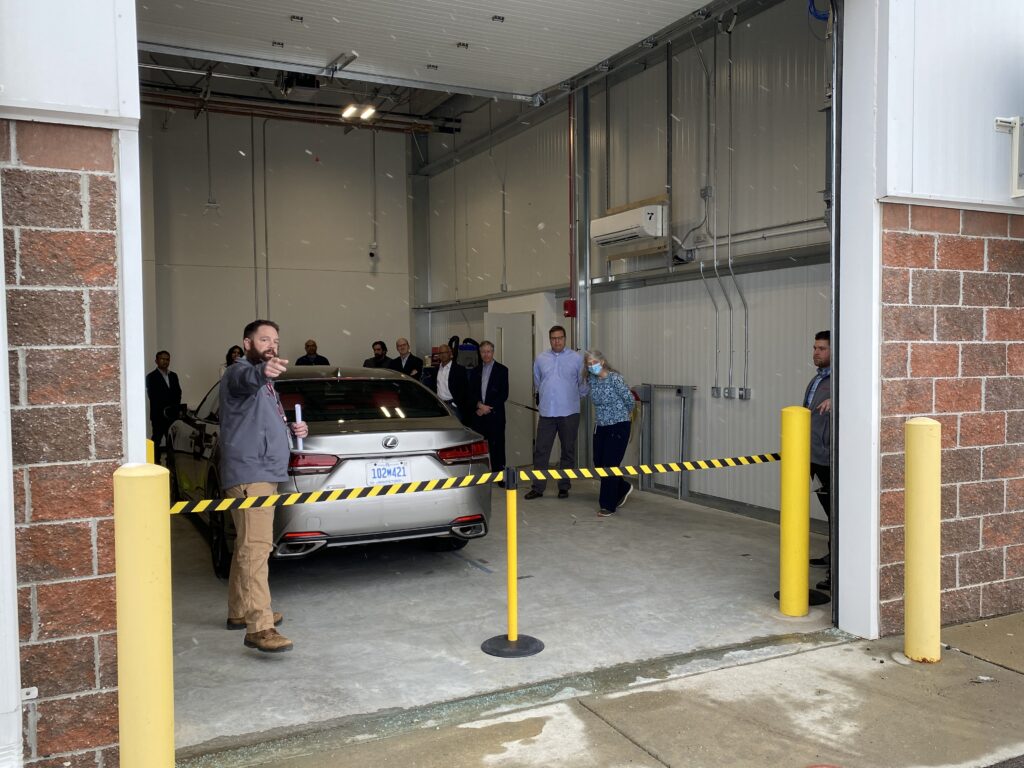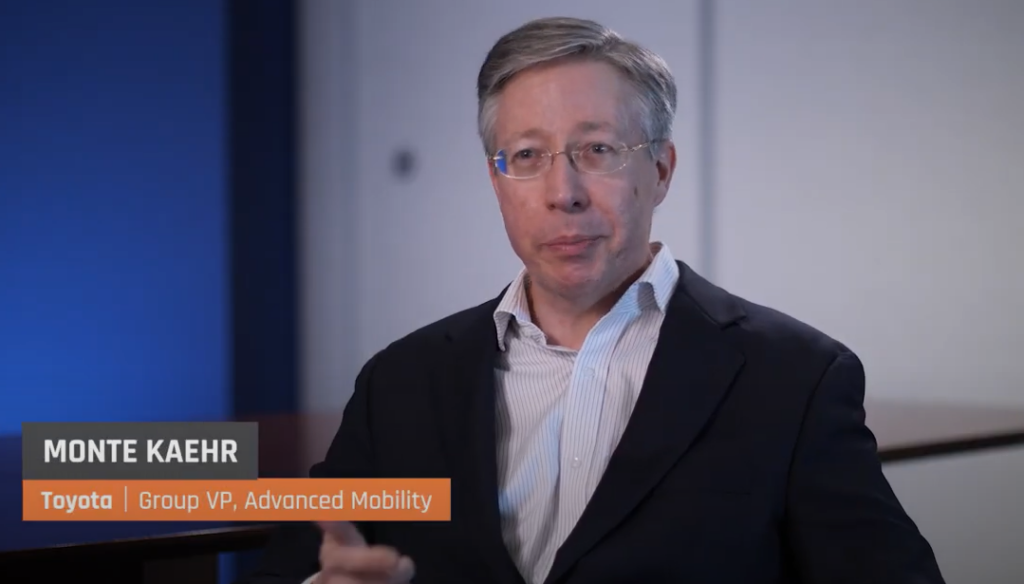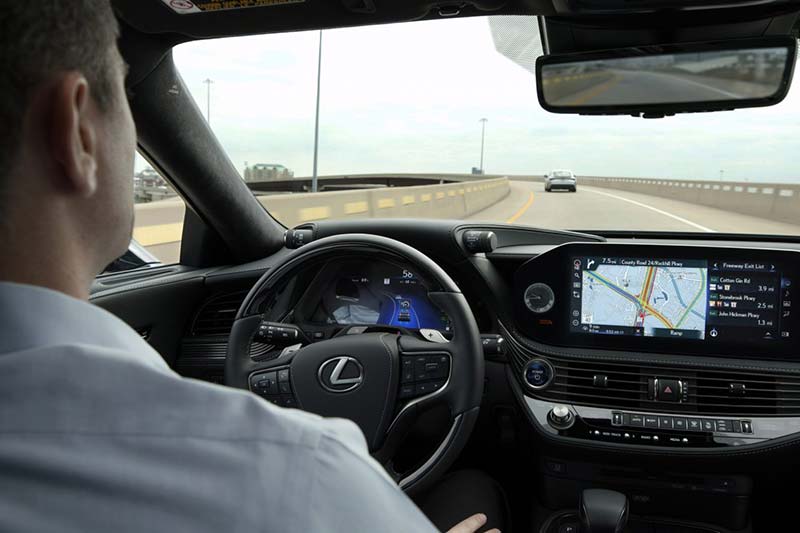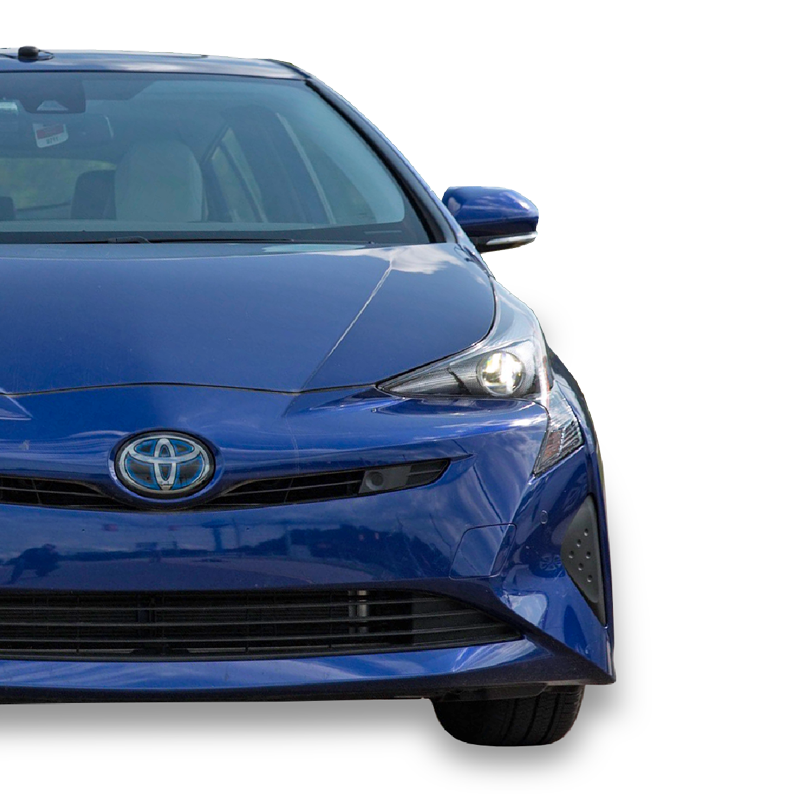
What We Do
As a product development group, Integrated Vehicle Systems (IVS) supports the full production cycle, from research to production follow-up, of driver assistance and driving automation systems. Through innovations like “Teammate” and other advanced safety technologies, the work performed by IVS has directly impacted vehicles operating on the road today to enhance mobility and help create a safer world.
Show MoreBased in Ann Arbor, Mich., IVS is a small, interdisciplinary team of engineers and researchers with a unique mix of backgrounds and experiences, ranging from software engineers, algorithm developers, systems integrators, vehicle dynamics engineers, technicians and data analytics experts. Their core philosophy is to produce a best-in-class user experience while simultaneously developing cool stuff. They work on the full lifecycle of advanced development, leading the way with technologies for products currently in development, many of which will be in production within a few years. The team examines not only automated systems but seeks to innovate around the interaction between the driver, their vehicle, personal electronic devices, the cloud and out-of-car experiences.
Teams at IVS have made important contributions to the development of core safety systems, including Toyota Safety Sense (TSS) and Lexus Safety System+ (LSS+), which now come standard on nearly every new model. Features they work on, such as Lane Trace Assist, Lane Departure Alert, Automatic Emergency Braking and Automatic High Beams are designed to help correct human mistakes or vulnerabilities.
The division’s recent work might be its most significant accomplishment yet. IVS played a critical role in preparing Teammate’s “Advanced Drive” function for use in the U.S. Teammate is an advanced driver assistance technology, classified as an SAE Level 2 system, that partners with the driver and provides assistance while driving on certain highways. The technology can benefit drivers by helping to reduce fatigue over long periods of driving. Engineers from IVS tested the system with the same test vehicles and software deployed by teams in Japan, allowing for U.S.-specific safety considerations, such as reversible express lanes and draw bridges, to be factored into the design and performance of Advanced Drive.

Nick Sitarski

Derek Caveney, Ph.D.

Yuji Okuda

Miles J. Johnson, Ph.D.

Gregg Overfield
Nick Sitarski
Nick Sitarski is vice president for the Integrated Vehicle Systems division at Toyota Motor North America (TMNA) R&D. He leads a team of 75 engineers and technicians in the research, advanced development, evaluation, production implementation and post-production quality assurance of various advanced driver assist systems (ADAS) and automated driving systems (ADS) technologies within North America.
He joined TMNA R&D in 2005 and has held multiple positions, both as an engineer and manager, related to the development, evaluation and commercialization of new electrical parts and systems. During this time, Sitarski has won 17 patents from the U.S. Patent and Trademark Office.
Before TMNA, Sitarski worked at SY Systems Technologies as a systems engineer.
He earned a Bachelor of Science in Electrical Engineering and a Master of Science in Engineering Management, both from the University of Michigan-Dearborn, where he is a member of the College of Engineering and Computer Science Visiting Committees.
Derek Caveney, Ph.D.
Derek Caveney is a senior executive engineer within Advanced Mobility R&D at Toyota Motor North America Research & Development (TMNA R&D) in Ann Arbor, Michigan, where he supports the global development of automated and connected driving technologies for safety, comfort and fuel-efficiency applications.
He joined Toyota in 2005 as a senior research scientist.
Caveney has been a member of the Society of Automotive Engineering since 2007 and represents Toyota at the Automated Vehicle Safety Consortium under SAE-ITC. In 2020, Michigan Gov. Gretchen Whitmer appointed him to serve a three-year term on the Council on Future Mobility and Electrification.
He received a Bachelor of Science in Engineering in Applied Mathematics from Queen’s University, Kingston, in Canada, in 1999 and a Master of Science and Doctor of Philosophy in Mechanical Engineering from the University of California, Berkeley, in 2001 and 2004, respectively.
Yuji Okuda
Yuji Okuda is an executive engineer for the Integrated Vehicle Systems division at Toyota Motor North America (TMNA) R&D.
He supports local deployment of advanced driver assist system (ADAS) and automated driving systems (ADS) in North America and is responsible for regional practices to align systems to the North American environment.
Okuda-san joined Toyota Motor Corporation in 2005 and engaged in lateral support system development, including: Lane Keeping Assist, Toyota’s first Lane Departure Alert for the North American market as well as the first Lane Departure Alert with steering assist. Okuda-san lead the 20TM LiDAR development before being assigned to TMNA.
He earned a Bachelor of Science in Electrical Electronics and Information engineering in 2003 and a Masters of Science in Electronics Engineering in 2005, both from Osaka-University.
Miles J. Johnson, Ph.D.
Miles Johnson is an Executive Engineer in the Integrated Vehicle Systems group at Toyota Motor North America R&D. He focuses on the development of localization, mapping, and learning-based planning and control systems, from early concept to production software development for automated driving system (ADS) projects. He is leading the intersection of motion planning, machine learning, and software engineering to realize next generation vehicle systems. He has had production algorithm and software responsibility for components in both Toyota Safety Sense and Lexus Advanced Drive systems. In addition to product development, Johnson enjoys designing the infrastructure that enables efficient development and testing, including software engineering processes, DevOps/MLOps pipelines, and simulation (software/hardware in the loop).
Prior to joining Toyota in 2014, Johnson was a member of the robotics group in the department of Aerospace Engineering at the University of Illinois, where he earned his PhD, advised by Professor Timothy Bretl. Through the process of implementing theoretical frameworks in learning-based control, he also developed avionics and control infrastructure that form the core of AE483 Autonomous Systems Lab — a course that brings students from modeling the dynamics of quadrotor helicopters to performing autonomous navigation and collision avoidance in a motion capture lab.
Johnson was motivated by his time at Cornell University as a member of the science panoramic camera team working with the NASA Jet Propulsion Laboratory on the Mars Exploration Rover mission. During this mission he performed and developed software for pre-flight and in-flight camera calibration, instrument health monitoring during cruise and landed operations, and science image planning and visualization.
Born and raised in Champaign, Ill., Johnson received Bachelor of Science in Mechanical and Aerospace Engineering from Cornell University.
Gregg Overfield
Gregg Overfield is group manager for the Automated System Design Department at Toyota-R&D, where his responsibilities include design, development and deployment for ADAS and ADS systems for Toyota.
He started his career at Ford Motor Co. in chassis design working on suspension, steering and braking systems. In 2002, he joined Toyota Motor North America as a chassis engineer and developed suspension, tire, brake system and brake control systems. He also spent one year in Japan at Toyota Motor Corporation as an intra-company transferee.
Overfield earned his Bachelor of Science in Mechanical Engineering from the University of Michigan and his Master of Science in Engineering Management from the University of Michigan Dearborn.

From the office to the test track, a career at IVS involves working on product technology for an automated and safer future. The team is motivated by its core philosophy of producing a best-in-class user experience while developing cool stuff. Team members are involved at every step of the process, including design and product testing.
For a listing of available jobs, visit Toyota’s career portal.

